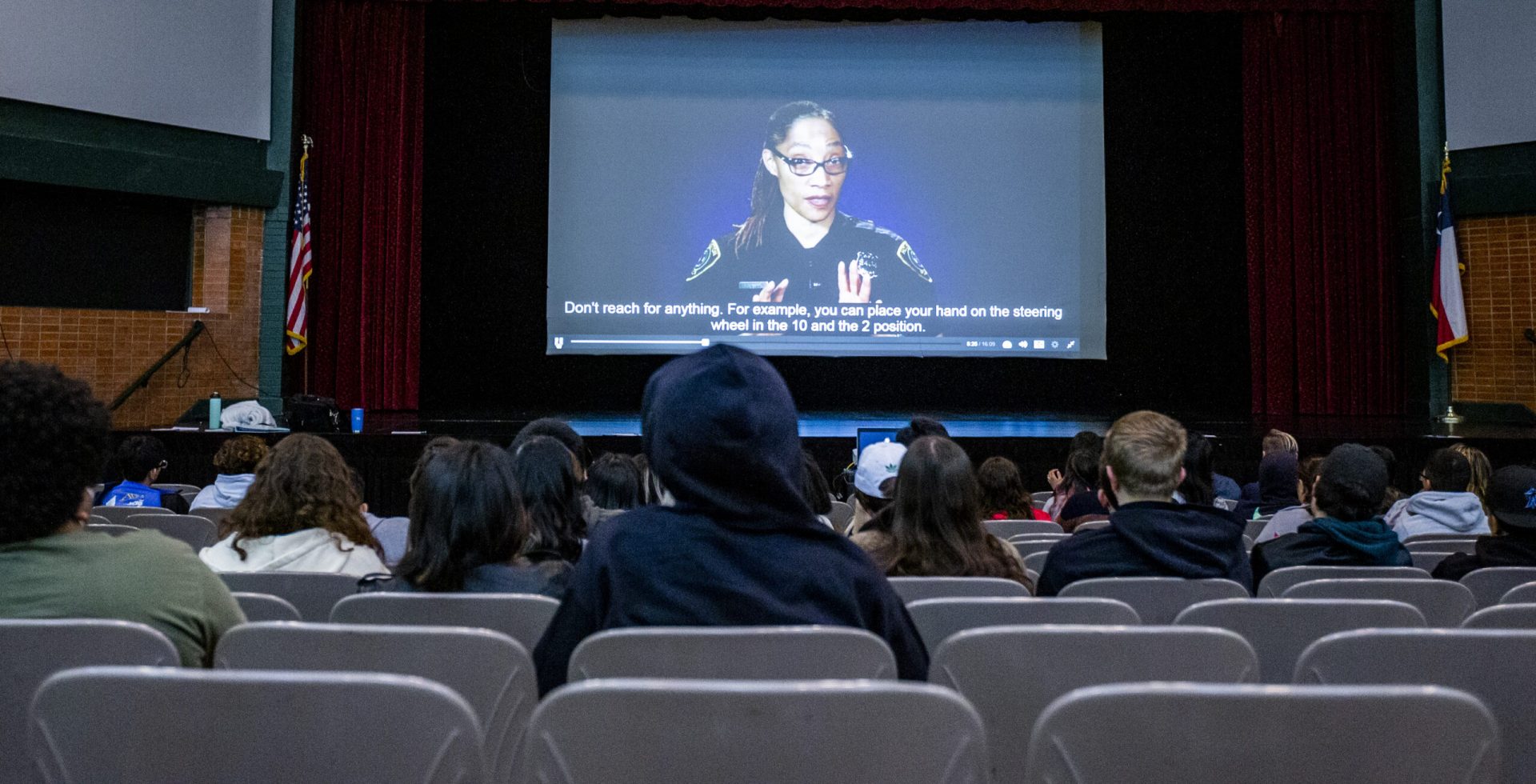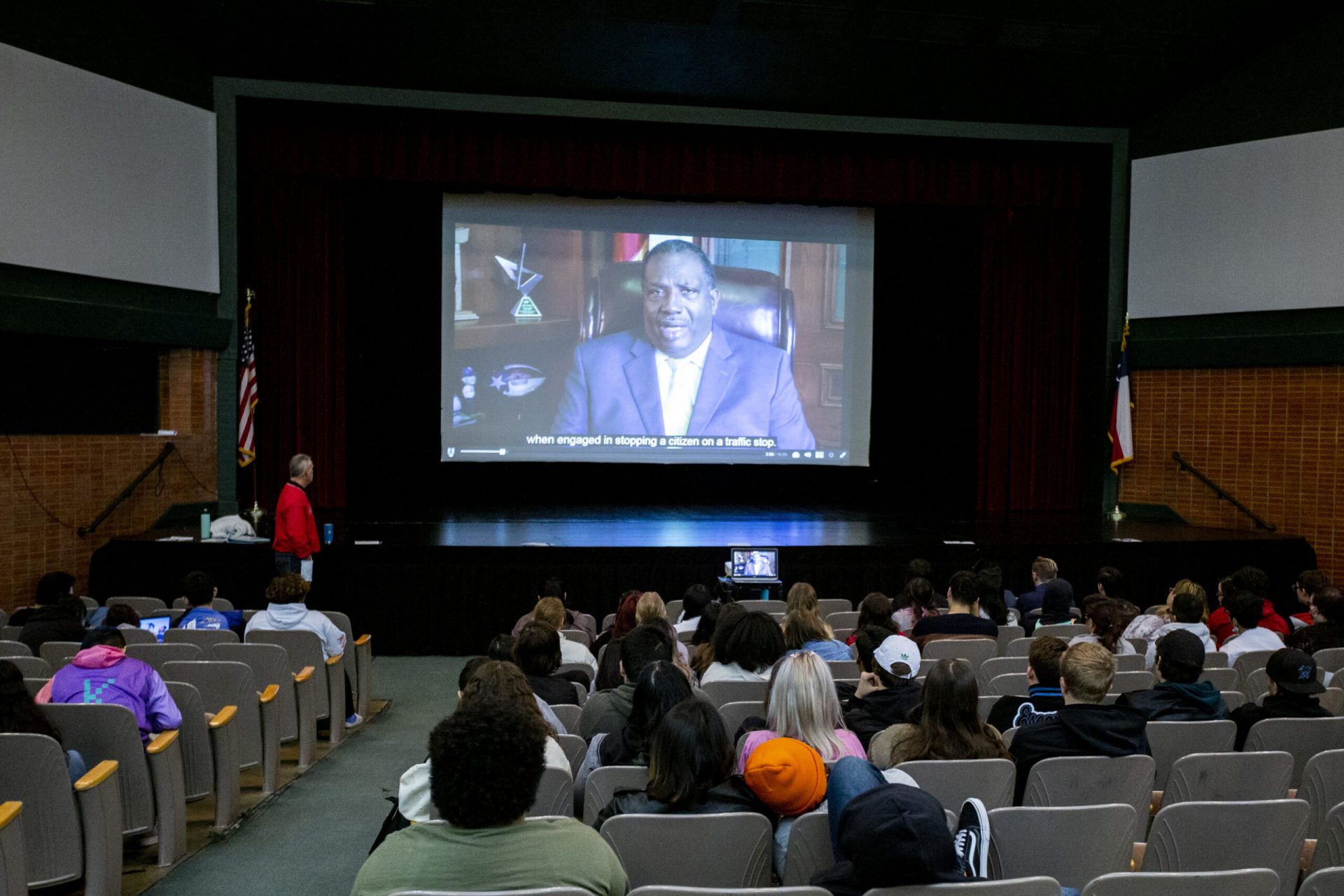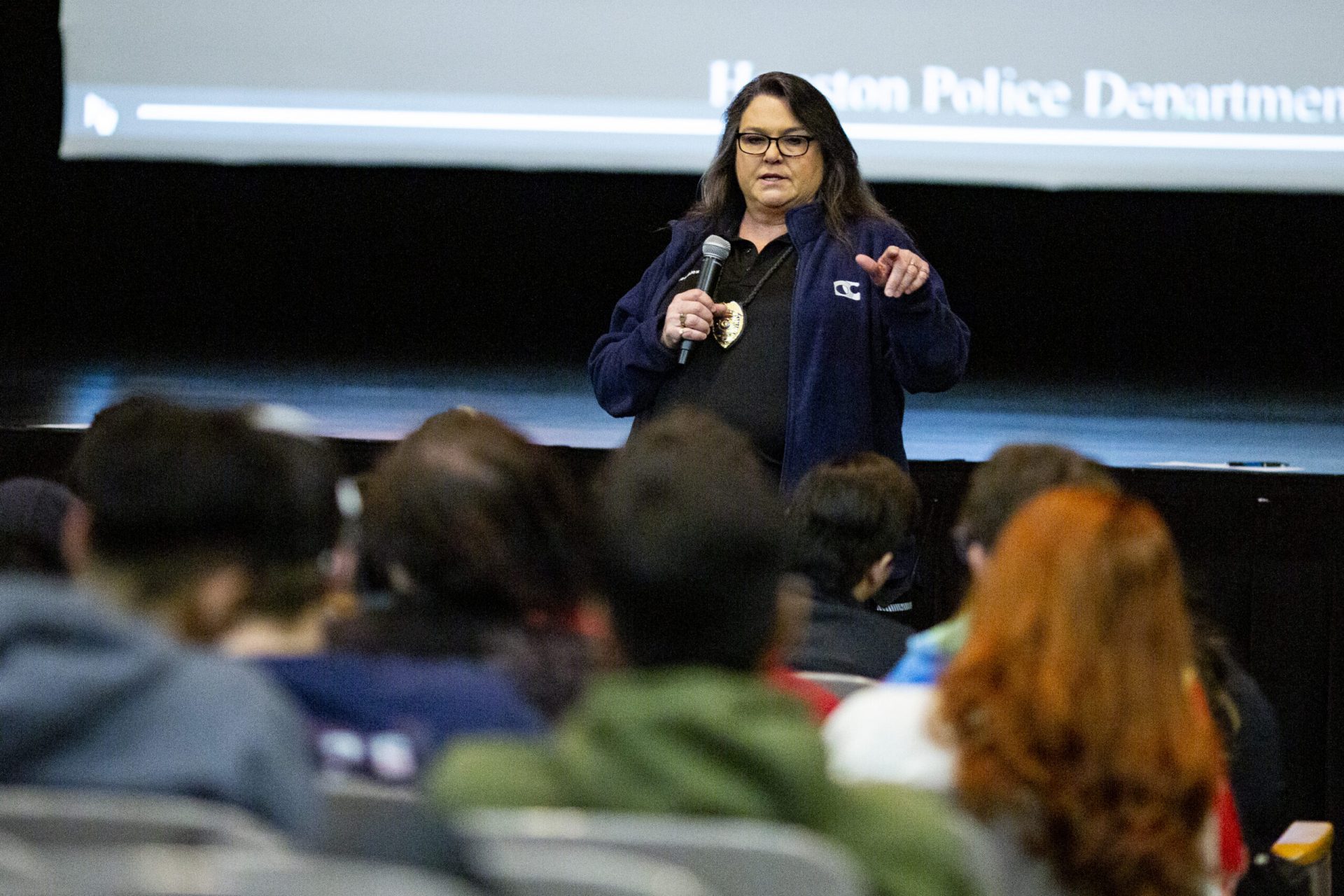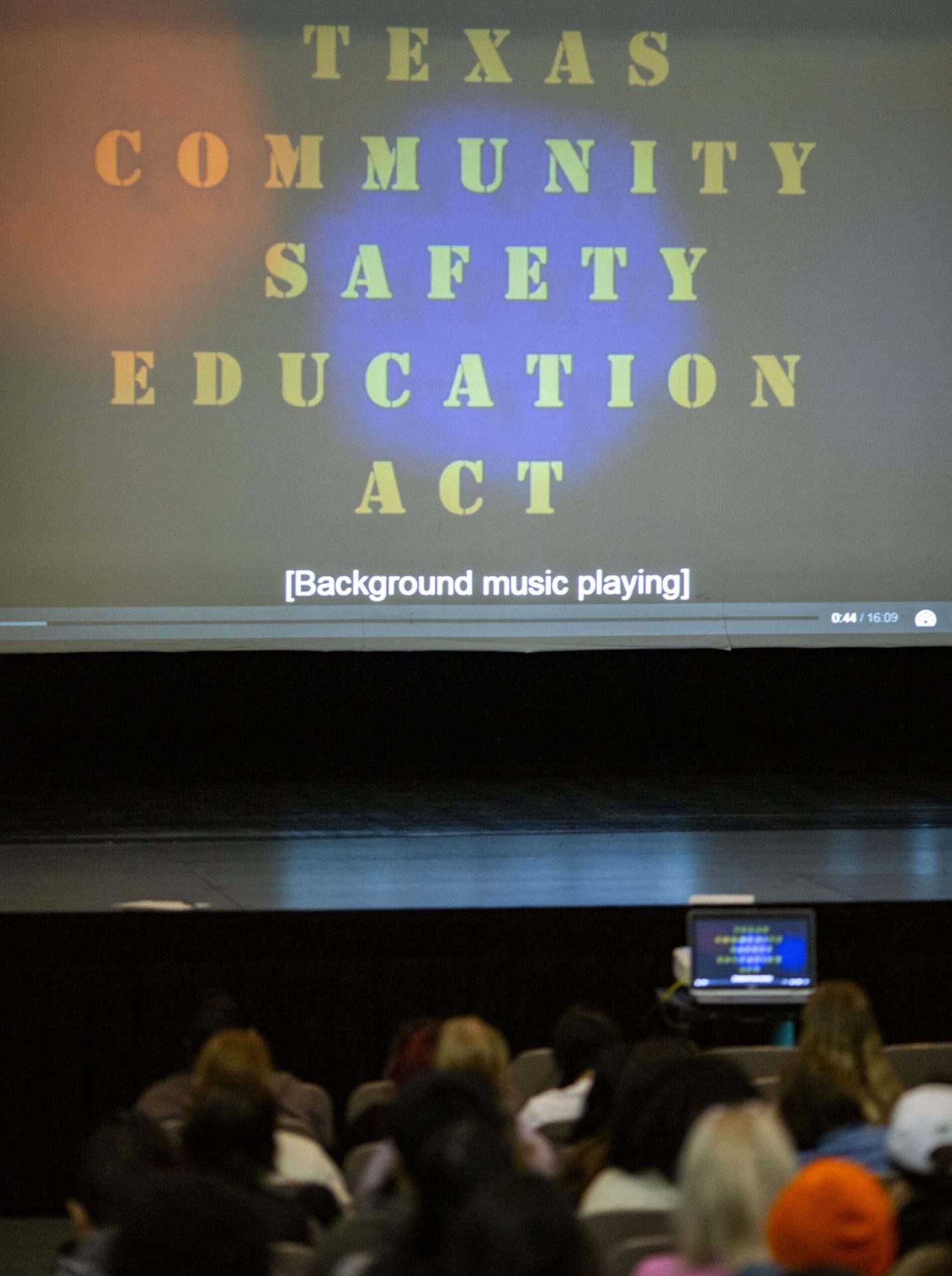What to expect when you’re pulled over by a police officer and how to respond was the subject of assemblies for Odessa Collegiate Academy and OCTECHS students Wednesday at Deaderick Auditorium.
About 68 OCA students and 65 OCTECHS students attended Wednesday’s sessions in the auditorium, which is on the Odessa College campus.
Students watched a video called Flashing Lights: Creating Safe Interactions Between Citizens and Law Enforcement. High school students in grades nine through 12 are required to watch the video under state law and the Texas Education Agency.
Odessa College Police Department Chief Leslie Alexander presented information and answered questions from students afterwards.
The law was passed as a result of some bad outcomes from traffic stops.
The video covered the right and wrong ways to handle being pulled over by a law enforcement officer and officers’ expectations.
The video advises keeping your hands visible, not moving around and not reaching for anything. You should place your hands in the 10 and 2 position.
Also, it says to take a deep breath, breathe, relax, wait for the officer to approach and they’ll give you further instructions. If it’s dark, turn the overhead light on.
The video also advises people to roll down their windows, for example, if the windows are tinted or if there’s not a lot of light. It also helps officers identify anyone who might be in the back seat.
The video said you can be arrested if you refuse to show your driver’s license to an officer. And under certain circumstances, if probable cause exists, the officer may require the passengers to identify themselves.
If you don’t have your license on you an officer can usually verify that you have a license once he or she obtains basic information from you.
Depending on the local law, you may be arrested but most likely you will only get a citation, the video stated.
The officer may also ask the driver to get out of the car because of the chance that the officer and/or their vehicle may be struck by another driver while conducting a traffic stop.
Many times passengers want to get involved with the stop, but the video advises that officers will usually only speak to the driver. It is up to the driver to pass the information on to the passenger.
When an officer makes a traffic stop, it’s usually about getting people to drive more safely.
Most of the time law enforcement looks for traffic violations in areas where there have been accidents, citizen complaints about traffic, or areas known to be dangerous like narrow streets, hills and blind curves.
The video stated you should consider a ticket as a personal recognizance bond. You sign it to say you will contact the court so you can be released to go on your way. If you don’t sign the ticket, you can be arrested and taken to a magistrate.
The law says you have to be given at least 10 days to contact the court to say what you plan on doing. At this point, you have options you can discuss with the court. You can ask to go to trial and have a judge decide your case.
Some courts allow you to plead no contest and take defensive driving courses to then have the ticket dismissed, or you can pay the fine.
If you don’t have the money right away, almost every court will work with you to set up a payment plan. There are other options that you may have that vary court by court.
The big thing is to ask and be sure to do it before that time set on your citation. If you think an officer acted inappropriately or didn’t have a reason to stop you, you can take it to court and the court will have the final say on whether or not you violated the law.
Alexander noted that students can also have their cases heard in Teen Court.
You can also contact the officer’s employing agency and lodge a complaint, or compliment them.
Most officers in Texas and across the country now have in-car cameras with audio or on body-worn cameras with audio so that would be the starting point of an investigation.
After the department’s investigation, they will contact you, mention what the results were and let you know what action is any was taken.
An officer can ask to search your car, but even if you say yes you can change your mind. However, if the officer has probable cause to search, they do not need consent.
Alexander has been police chief at OC for nearly five years and she has decades of previous experience, mostly in educational settings.
“I’ve done just about every job there is a police work all the way from patrol, investigations, K-9, training, management, emergency management. So I have a pretty broad base … My preference is the educational setting because it’s a much, much more positive environment than traditional policing, which I did for seven years,” Alexander said. “… So I’ve been doing this a day or two. Most the people in this town are basically good people. … Our schools are a snapshot of the demographics of our community …”
A small percentage of people perceive police as the enemy, she said.
“But most people are appreciative of police officers and what we do. … Having said that, there are bad apples in every group, including police officers. …,” Alexander said.
Officers are trained at the police academy and then they have another four to six months of training after that where they’re taught how to apply what they learned in the police academy, she said.
Alexander said when you are stopped you should always have your driver’s license and proof of insurance ready.
She added that you don’t have to be friendly, but you should be respectful.
Roseline Acuna, 17, and Samantha Patino, 18, are both seniors at Odessa Collegiate Academy.
“It taught me a lot of stuff on how when I get pulled over what to expect and what to follow. I’ve never been pulled over before, so I never would have known to do the things that they told us to do,” Patino said.
Acuna said she feels the video was useful.
“It helped me a lot to calm my nerves down because I’ve also never been pulled over and I never knew like what I had to do; what they expected me to do. I didn’t know you had to put your hands on the steering wheel, not to move … so that really helped me a lot …,” Acuna said.
OCA Principal James Ramage said he thinks the video can also help adults refresh themselves on what to do and not do if they are pulled over.
Ramage added that the 85th legislature passed the law that requires students to view the video.







